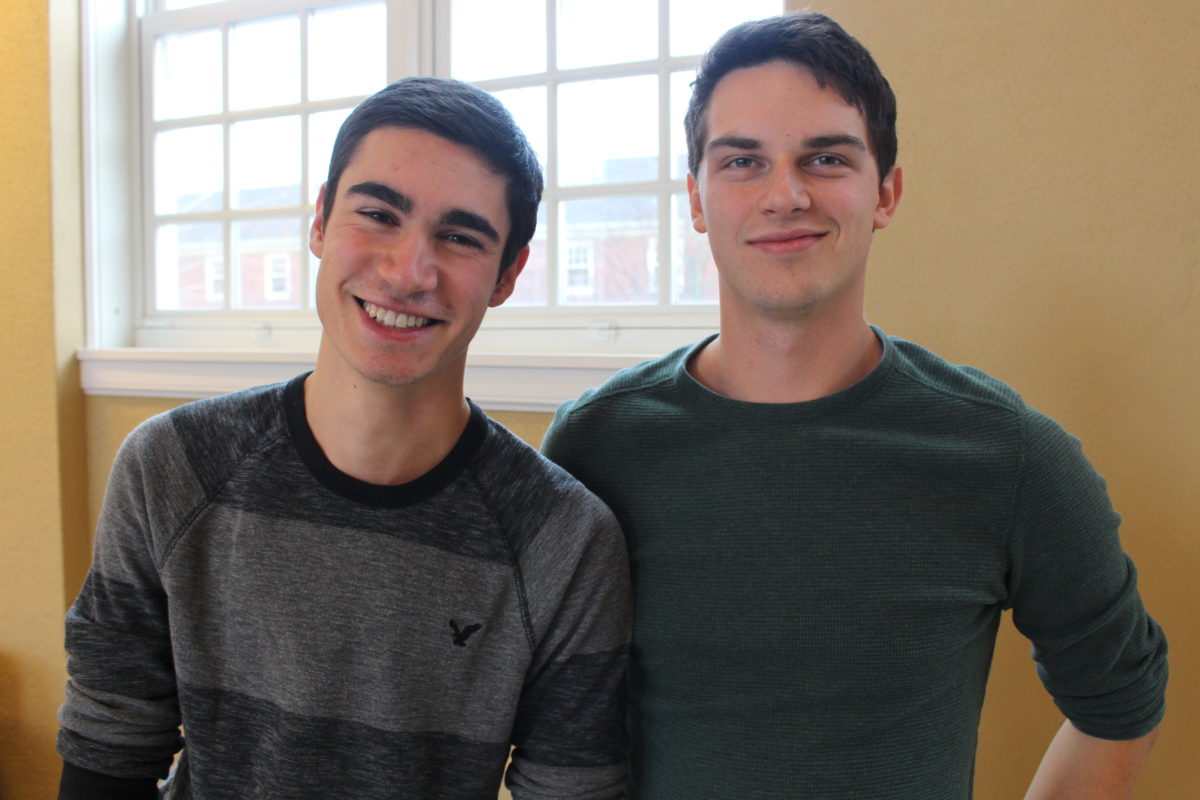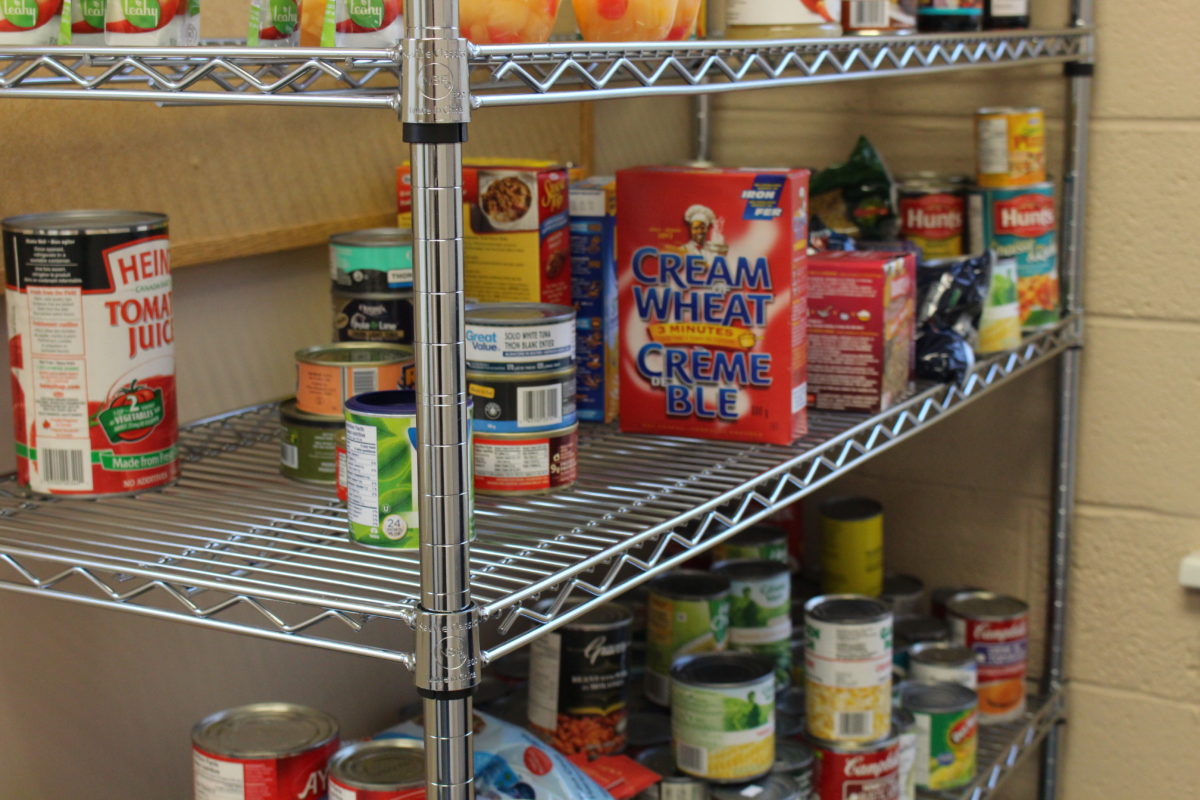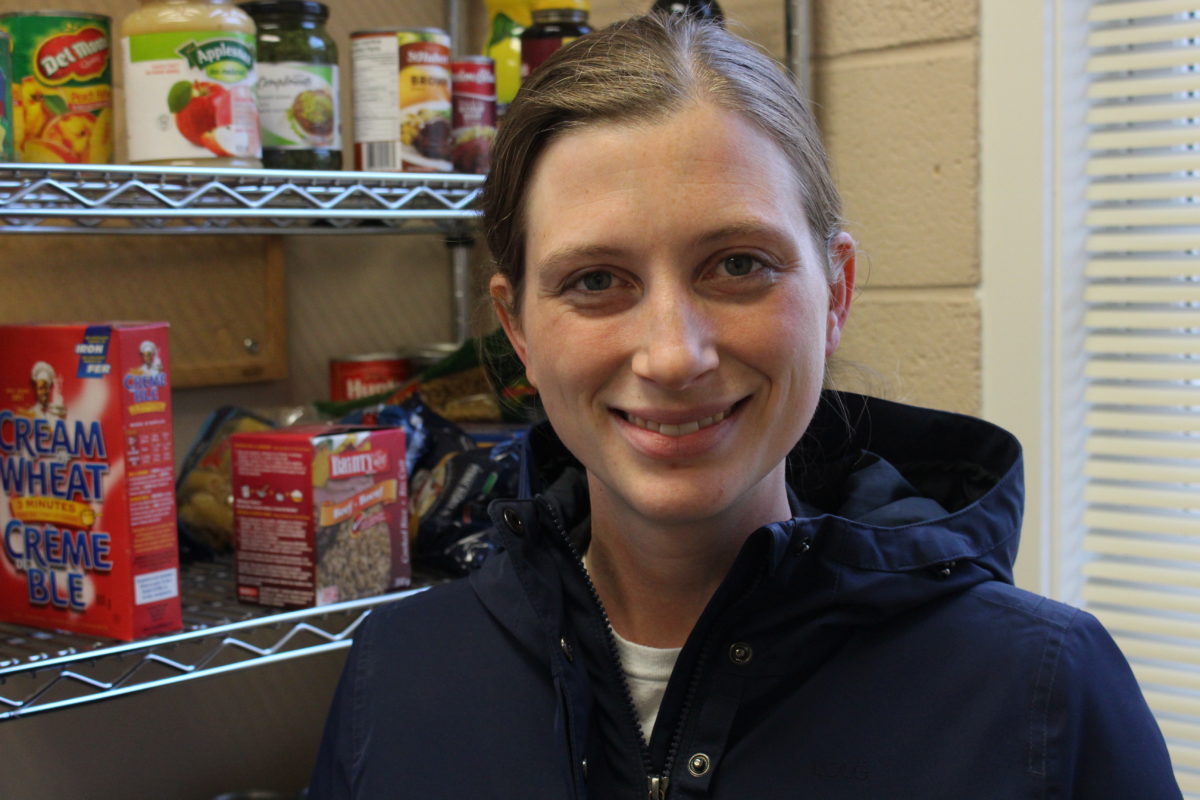Circumstance doesn’t matter when it comes to the campus food bank which has been coordinated by the campus ministry since the 1990s. It is available to all students who need a little extra help. However, many students don’t know it exists.
“There’s always work to be done in terms of making [the food bank] more prominent, but it is right there, and people don’t have to feel like they have to go to a community kitchen,” said Michael Pallotto, a student assistant to the campus minister Vivien Zelazny, who manages the food bank.
“It’s a service that’s provided [by the school], it’s respectable and it’s right there on campus. No one should be required to go out of their way to get food and we make sure that that is the case.”
According to a 2015 study by the Canadian University Survey Consortium, the average amount of student debt was $26,819, not including students who don’t have any debt at all.

“All the stereotypes of students are that we’re super poor,” said Ethan Merrifield, a volunteer at the food bank.
“[The food bank is] nice because it gives people options. They don’t have to eat a terrible diet just because they can’t afford to go to the grocery store because rent was too much.”
To make sure students always have something to eat, the campus ministry collects community-donated non-perishable food items from baskets that are scattered throughout campus. Staff and faculty may donate through payroll deduction and donations are collected from campus-organized food drives like Trick-or-Eat.
According to Zelazny, the food bank is always looking for donations of canned proteins, along with cereal, pasta and snacks like granola bars and fruit cups. The food collected is available to all students who need a little extra help when money is tight.
“We all know that university is expensive, and a lot of students have trouble making ends meet. In some cases, people are just learning how to budget, how to be on their own and in other cases they’re dealing with debt and some are single parents,” Zelazny said.


“There are all kinds of reasons people find themselves short on food and we know that happens, and we don’t think that it’s their fault and we just want to help out.”
The food bank is located in the back of George Martin Hall, but you must access it through the outside entrance on the balcony. This is to maintain a sense of privacy, as a stigma can accompany the need to use the food bank.
“[The food bank’s] use is completely anonymous. I think that’s really important in the small community. We don’t want people to feel ashamed,” Zelazny said.
The food bank is meant to be used by students, so the food donated doesn’t go to waste.
“We hope that people understand and feel respected that there’s no intention to get rid of the anonymity and there’s no stigma in needing to grab food,” said Merrifield.
Zelazny and her student volunteers are currently working on “sprucing up the food bank” to include more visible donation boxes, better communication with students by starting a newsletter and making the food bank more known on campus.
However, just because the food bank isn’t well known doesn’t mean people aren’t using it.
“It’s weird because the food bank is so anonymous, that I don’t necessarily know who I am helping and that’s really not my objective,” said Pallotto, who explained that the shelves are always in need of restocking within a few weeks.
“[My objective] is to know that it’s being used and that it’s taking care of people in some regard.”
Zelazny agreed, adding the food bank exists to support people who need it.
“We want people to know that we’re there for them and that virtually everybody in our society is going to go through some time in their life when they’re finding it hard to make ends meet.”

